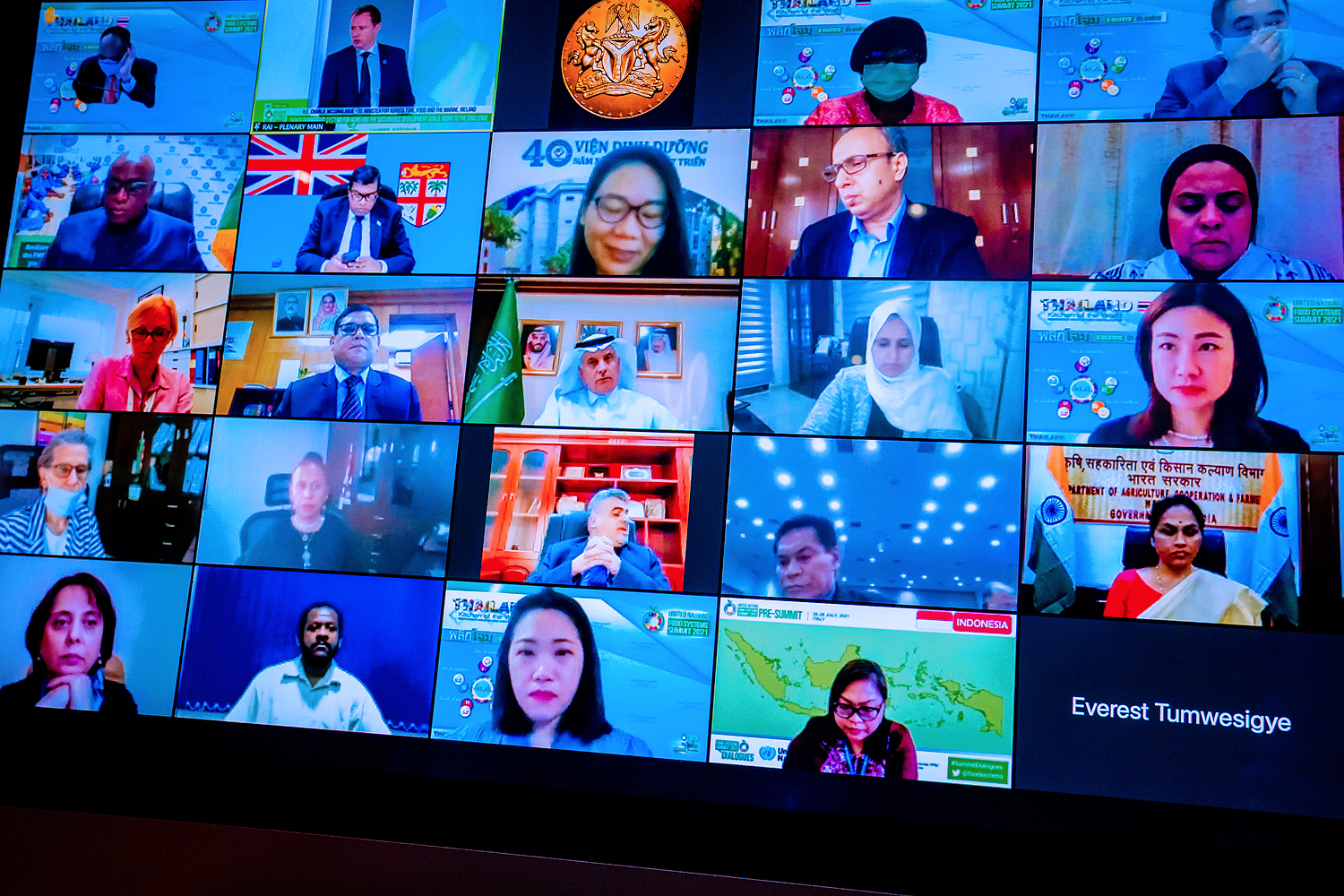Preparatory Meeting Of The United Nations Food Systems 2021 Summit
VIRTUAL REMARKS BY HIS EXCELLENCY, PROF. YEMI OSINBAJO, SAN, GCON, VICE PRESIDENT OF THE FEDERAL REPUBLIC OF NIGERIA AT THE PREPARATORY MEETING OF THE UNITED NATIONS FOOD SYSTEMS 2021 SUMMIT ON THE 27TH OF JULY, 2021
PROTOCOLS
It is a very special pleasure to join this very crucial dialogue on the Food System Transformation Pathways ahead of the United Nations Food Systems’ summit in September. The Secretary-General of the United Nations and His Excellency, the Prime Minister of Italy, Mario Draghi, deserve our special commendation for this proactive initiative to foster a community response to transform food systems and to mobilize the public and private investments that are required.
Let me say right away that the case for transformative food systems is obvious to us in Africa especially if we consider that nearly 20% of African people experienced hunger in 2019. And transformative food systems are also essential to feed and nourish growing populations in an environmentally sustainable manner.
When as in our country and several others, for example, population growth exceeds growth in national income, food supply would not meet the needs of people especially when distribution systems are inequitable.
Also post-harvest losses in Africa and Nigeria being a good example of that, are more than 20% of production for several food groups. This is due mainly to poor storage, poor rural infrastructure and non-automation of food processing amongst other things.
Also in this context, it is important to emphasize that we must transform food systems to ensure environmentally sustainable production practices. Some agricultural practices have contributed to soil degradation and erosion, and this of course, affected production.
The situation in many African countries is given increased urgency with the impact of the COVID 19 pandemic which has led to growing levels of acute food insecurity. This is of great concern to all of us, especially if we recall that prior to the pandemic, the prevalence of severe food insecurity was as high as 22%.
So, it is in this context that the Nigerian Government committed to addressing the drivers of food insecurity such as food inflation, changing consumption patterns and climate change amongst other things.
At the same time and as an outcome of 40 different food systems dialogues in which up to 5000 people participated, Nigeria is prioritizing investments in specific innovations and technologies to scale up and transform food systems.
These actions complement existing development plans and sectoral strategies such as our Economic Recovery and Growth Plan, the National Policy on Food and Nutrition, and the National Policy on Food Safety.
Similarly, a specific aim of our recently launched National Poverty Reduction and Growth Strategy is to address hunger malnutrition and poverty as part of our target of lifting a hundred million Nigerians out of poverty within a decade.
At the heart of Nigeria’s post-COVID-19 response is our Economic Sustainability Plan, and this plan has a major component which is the Agriculture for Food and Jobs Programme (AFJP) where we seek to leverage suitable technologies to build a resilient food system for Nigeria.
Already over six million farmers who have been registered and geo-tagged to their farmlands are being partnered with private investors who will supply their inputs and guarantee offtake of their produce. Any produce that is left over will be bought by government for the strategic grains reserve and for use in our Home Grown School Feeding Programme.
Our Nutrition Policy addresses the issues of sustainable and nutrition-sensitive food systems- and the country has prioritized key nutrition actions that are impactful, cost-effective, scalable, and sustainable.
As I close, I should explain that an integral part of our food systems transformation strategy is to create an enabling and supportive environment to implement these policies in a participatory manner involving farmers, investors and State Governments.
We accordingly expect to see significant improvements in crop yields, affordable and healthy diets, and reductions in poverty and inequality soon.
As we work towards realizing the Sustainable Development Goals – we should strive to foster a global food system that works for all.
Thank you very much.





